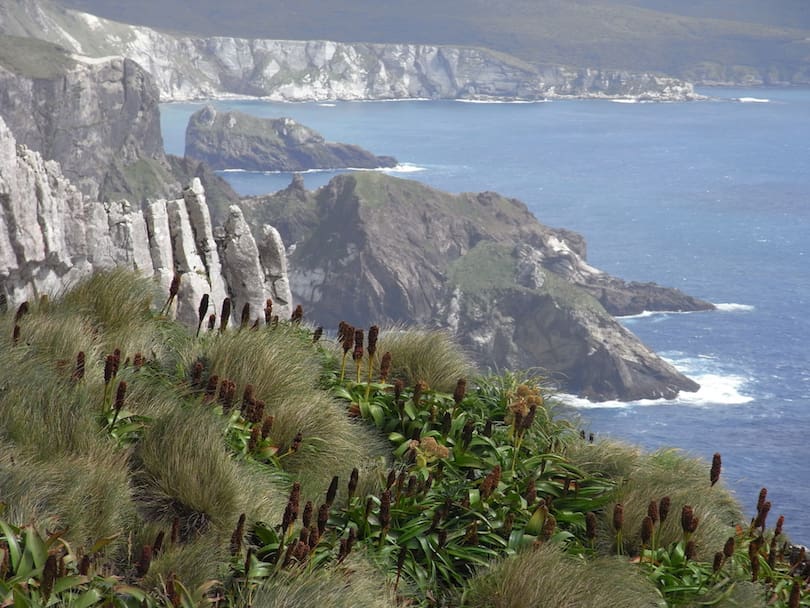Rishikesh, often referred to as the “Gateway to the Himalayas,” is a small town located in the northern state of Uttarakhand, India. Situated on the banks of the holy Ganges River, Rishikesh holds immense spiritual significance and attracts thousands of pilgrims and seekers from around the world. This article will delve into the various aspects that make Rishikesh a remarkable destination, including its geography, spiritual heritage, adventure activities, and more.
Introduction to Rishikesh
Nestled in the foothills of the mighty Himalayas, Rishikesh is renowned for its serene ambiance and picturesque landscapes. The town serves as a gateway to the higher Himalayas and is considered the starting point for various treks and expeditions. It provides a perfect blend of spirituality, adventure, and natural beauty, making it a popular destination for travelers seeking solace, enlightenment, and thrilling experiences.
Geographical Location and Significance
Rishikesh is located in the Dehradun district of Uttarakhand, at an elevation of approximately 372 meters above sea level. It is surrounded by lush green hills and offers breathtaking views of the Himalayan peaks. The town is situated at the confluence of the Chandrabhaga and Ganges rivers, which adds to its scenic charm. Its proximity to the mountains and the holy river makes Rishikesh a place of great geographical and spiritual importance.
Spiritual and Religious Importance
Rishikesh is considered one of the holiest places in India and is often called the “Yoga Capital of the World.” The town is steeped in ancient mythology and is believed to be the place where Lord Vishnu performed penance to vanquish demons. It is also said that meditation at this sacred site can lead to salvation or liberation from the cycle of birth and death. Rishikesh is home to numerous ashrams and spiritual centers where seekers can learn and practice yoga, meditation, and various spiritual disciplines.
Rishikesh as the Yoga Capital of the World
With its tranquil environment and spiritual heritage, Rishikesh has become a global hub for yoga enthusiasts. People from all walks of life come here to undergo yoga teacher training courses, attend yoga retreats, and deepen their practice. The town offers a wide range of yoga schools and ashrams, where experienced teachers impart ancient wisdom and guide students on their yogic journey. Whether you are a beginner or an advanced practitioner, Rishikesh provides a nurturing environment to explore the depths of yoga and spirituality.
Adventure Activities in Rishikesh
Apart from its spiritual essence, Rishikesh offers a plethora of adventure activities for thrill-seekers. The fast-flowing Ganges River attracts adventurers from all over the world for white-water rafting. The rapids of the river provide an exhilarating experience for both beginners and experienced rafters. Rishikesh is also a popular destination for camping, rock climbing, trekking, and bungee jumping. The surrounding hills and forests offer ample opportunities for nature enthusiasts to explore and connect with the natural world.
The Holy Ganges River
The Ganges River holds immense significance in Hindu mythology and is considered sacred by millions of people. In Rishikesh, the Ganges flows in all its glory, creating a spiritual aura that is truly enchanting. The town is dotted with ghats (steps leading to the river) where devotees and visitors gather to perform rituals, take holy dips, and witness the grand Ganga Aarti, a captivating evening prayer ceremony. The serene banks of the river provide a peaceful retreat for meditation and contemplation.
Famous Ashrams in Rishikesh
Rishikesh is renowned for its ashrams, which serve as centers for spiritual learning and practice. The Parmarth Niketan Ashram, Sivananda Ashram, and Swami Rama Sadhaka Grama Ashram are among the most well-known and respected institutions. These ashrams offer various programs, including yoga and meditation retreats, spiritual discourses, and workshops. Visitors can immerse themselves in the ancient wisdom and teachings of renowned spiritual masters, fostering personal growth and self-discovery.
The Iconic Lakshman Jhula
Lakshman Jhula is a prominent landmark in Rishikesh and a major tourist attraction. It is a suspension bridge across the Ganges River that connects the town with the neighboring village of Tapovan. Legend has it that Lakshmana, the brother of Lord Rama, crossed the river at this very spot using a jute rope bridge. The current bridge, made of iron and concrete, is a popular spot for tourists to stroll and enjoy panoramic views of the river and the surrounding landscape.
Exploring the Beatles Connection
Rishikesh gained international recognition when the Beatles, the famous English rock band, visited Maharishi Mahesh Yogi’s ashram in 1968 to learn transcendental meditation. This visit put Rishikesh on the global map as a spiritual destination. The ashram, now known as the Beatles Ashram or Chaurasi Kutia, still attracts fans of the band who come to relive that historic chapter in music history. The ashram’s ruins offer a glimpse into the Beatles’ stay and the profound impact it had on their music and lives.
Rajaji National Park and Wildlife
Nature lovers and wildlife enthusiasts can explore the nearby Rajaji National Park, which is named after the first President of India, C. Rajagopalachari. The park is a haven for diverse flora and fauna, including elephants, tigers, leopards, deer, and a wide variety of bird species. Visitors can embark on jungle safaris, nature walks, and birdwatching excursions to witness the rich biodiversity of the region. Rajaji National Park provides a refreshing escape into the lap of nature, away from the hustle and bustle of the town.
Temples and Religious Sites
Rishikesh is home to numerous temples and religious sites that hold immense cultural and religious significance. The Triveni Ghat, where the three holy rivers Ganges, Yamuna, and Saraswati converge, is a popular spot for spiritual rituals and prayers. The Neelkanth Mahadev Temple, dedicated to Lord Shiva, is perched atop a hill and offers panoramic views of the surrounding valleys. The Bharat Mandir, Geeta Bhawan, and Kunjapuri Devi Temple are other notable places where devotees and seekers can connect with their spiritual side.
Local Cuisine and Food
Rishikesh offers a wide range of culinary delights that cater to different tastes and preferences. From traditional Indian cuisine to international dishes, the town has something for everyone. The local cuisine of Uttarakhand, known as Garhwali cuisine, includes dishes like Kafuli (a spinach-based curry), Bhatt ki Churdkani (black bean curry), and Bal Mithai (a sweet made from khoya and cane sugar). Rishikesh is also known for its healthy and organic food options, with many restaurants and cafes serving vegetarian, vegan, and Ayurvedic meals.
Festivals and Celebrations in Rishikesh
Rishikesh comes alive during festivals and celebrations, reflecting the vibrant culture and religious fervor of the region. The International Yoga Festival, held annually in March, attracts yoga enthusiasts from around the world to participate in workshops, seminars, and demonstrations by renowned yoga masters. The Ganga Dussehra festival, celebrated in May or June, marks the descent of the Ganges from heaven to earth and is observed with great pomp and devotion. Other festivals like Diwali, Holi, and Makar Sankranti are also celebrated with joy and enthusiasm.
Accommodation Options in Rishikesh
Rishikesh offers a wide range of accommodation options to suit every budget and preference. From luxury resorts and hotels to budget guesthouses and ashrams, visitors can choose the type of stay that aligns with their needs. Many ashrams provide simple and affordable accommodations along with spiritual programs and meals. The riverside campsites offer a unique experience for nature lovers who wish to immerse themselves in the tranquility of the surroundings. It is advisable to book accommodations in advance, especially during the peak tourist seasons.
Conclusion
Rishikesh, the Gateway to the Himalayas, captivates travelers with its spiritual aura, natural beauty, and adventure offerings. It is a place where seekers can embark on a journey of self-discovery, delve into the depths of yoga and meditation, and witness the majesty of the Himalayas. From the holy Ganges River to the iconic Lakshman Jhula, from the Beatles Ashram to the wilderness of Rajaji National Park, Rishikesh offers a multitude of experiences that leave a lasting impression on visitors. Whether you seek spiritual solace, thrilling adventures, or a peaceful retreat, Rishikesh has something for everyone.
FAQs
- Q: How can I reach Rishikesh? A: Rishikesh can be reached by air, rail, and road. The nearest airport is Jolly Grant Airport in Dehradun, which is about 15 kilometers away. The nearest railway station is Rishikesh Railway Station, connected to major cities in India. Several buses and taxis also ply to Rishikesh from nearby towns and cities.
- Q: Is Rishikesh safe for solo travelers? A: Rishikesh is generally considered safe for solo travelers. However, it is always advisable to take basic precautions like being aware of your surroundings, avoiding isolated areas at night, and following the guidance of local authorities.
- Q: Are there any age restrictions for adventure activities in Rishikesh? A: Some adventure activities in Rishikesh, such as white-water rafting and bungee jumping, may have age restrictions for safety reasons. It is recommended to check with the activity providers regarding any specific age requirements.
- Q: Can I learn yoga in Rishikesh as a beginner? A: Absolutely! Rishikesh offers a wide range of yoga schools and ashrams that cater to beginners. Many yoga centers provide beginner-friendly classes and courses where you can learn the basics of yoga and gradually progress at your own pace.
- Q: What is the best time to visit Rishikesh? A: The best time to visit Rishikesh is during the months of February to May and September to November when the weather is pleasant and favorable for outdoor activities. However, Rishikesh attracts visitors throughout the year due to its spiritual and natural allure.





